I listened to a podcast the other day where the historian on it spoke about the respective declines of the Roman Republic and Empire. This is arguably the most influential civilization in history (the histomap in my apartment thinks so too), so I found it instructive to learn about what led to its downfall especially in the context of the current state of America.
The Roman Republic
The Roman Republic formed in 509 BCE following the overthrow of the Etruscan monarchy. It expanded primarily through military expansion, starting with the rest of Italy. It ultimately had a footprint that spanned the Western Mediterranean, pivotally through victory in the Punic Wars against Carthage.
One of the unique characteristics of their expansion strategy was to grant partial citizenship to conquered people. Instead of killing the men and enslaving the women and children as most other civilizations did at the time, the Romans recognized the value in incorporating these people into their society. It made them less likely to rebel in the future and provided a steady stream of new military recruits housed at the edges of the dominion.
The governance of the Republic centered around a detailed legal code and a system of checks and balances. Two annually elected consuls held executive power, the Senate (composed of wealthy aristocrats) guided foreign policy and financial matters, while the Plebian council gave common citizens a political voice.
There were two key factors that contributed to the decline of the Republic. The first was around inequality. The spoils from conquest victory were not shared equally with the constituent base. Veterans were displeased because they gave the best years of their life to the military and came back home with nothing to show for it. Small farmers (the bulk of the citizenry) felt like their lives didn’t see any material improvements even as the civilization amassed more power and riches. Half citizens from conquered lands wanted full citizenship and their voices to be heard. Slaves were obviously displeased. The aristocracy effectively closed off and became an even smaller elite group.
All of this created internal strife. And this cascaded into the second factor: the amassing of power by individuals. Over a hundred year period, a series of leaders emerged that started to accrue more personal power. They put the man over the state, an ethos that was antithetical to what the Republic stood for. They started to undermine the Senate, raised their own personal armies, extended term lengths, and generally pushed the boundaries of what was acceptable for consuls to do. This culminated with Julius Caesar, who declared supreme power for himself. He was assassinated, and the Republic was thrown into a civil war. Augustus emerged from this power vacuum in 27 BCE, and brilliantly managed to steward the Republic into an Empire, into an era of Pax Romana.
The Roman Empire
The early days of the Empire with Augustus at the helm were rosy. He was a great leader, and put into motion many of the foundations that made the Empire so powerful like the creation of an effective administrative system (tax collection, road network, civil service, standing army), a foreign policy that secured and expanded its borders, and infrastructure development: he famously proclaimed “I found Rome a city of bricks and left it a city of marble”.
Every governance system reliant on a single ruler has key man risk. Augustus did many great things, but the one question he left to ambiguity was the matter of succession. He implemented a quasi-hereditary system that had mixed results, producing some reasonable rulers like Claudius but also psychos like Caligula and Nero. This changed under the reign of the five good emperors from 96-180 CE, when they developed a system of succession through adoption, where they would adopt who they perceived to be the most qualified candidate. This ended when Marcus Aurelius decided to bequeath the emperorship to his son, Commodus.
This kicked off the decline of the Empire. They faced a series of interconnected problems that poor leadership exacerbated. There were a couple of vicious and connected death spirals that blew up over time.
The first was military threats. As Rome expanded, its borders became more difficult to secure. Various barbarian groups (e.g. Visigoths, Vandals, Huns) started to win battles and press into Roman territory. In response, more military spending was required to stave off these threats. This was financed through currency debasement by mixing in bronze in silver coins. This triggered inflation and a host of other economic problems as lack of trust in the currency impaired investment and consumption. The declining economic productivity meant tax revenue decreased, which further weakened the military and amplified the threats.
The second was civil war. The importance of staving off these external threats meant military success became the key legitimizing factor for emperors, so successful generals were often proclaimed emperor by their troops. There were multiple armies fighting wars across the Empire, so there was often conflict among generals about who would reign as emperor. At one point in the third century there were 28 emperors who reigned on average for three years and mostly died violently. These internal civil wars created agricultural disruption which led to food shortages. These food shortages combined with periodic plagues and loss of men in war resulted in a shrinking, more malnourished population. A smaller population meant fewer men to fight in wars, lower food production, and lower tax revenue. Cue more civil war and military defeats.
Diocletian attempted to quell this decline in ~300 CE through military reorganization, administrative reform, and changes to taxation and currency, but it was too little too late. By the 400s CE, the Western Roman Empire as we know it ceased to exist.
America today
There are some striking similarities to the problems Rome faced during their respective declines to the ones we face today.
Income and wealth inequality exacerbation
The spoils of the American economy are concentrated in the hands of a smaller group of people. Over the last 50 years, the rate of return on capital (r) has exceeded the rate of economic growth (g). This means that those who rely on capital growth to build wealth instead of wage growth have gotten better off - nobody gets rich off a W-2. On top of that, both the highest marginal income tax rate and the long term capital gains rate have gone down, reducing the tax burden on the wealthy. This has resulted in a Gini coefficient, which is a measure of economic inequality, to rise.
This trend doesn’t seem like it’s going to stop any time soon. Progress in AI means more productivity growth will be concentrated in the capital stock instead of in labor, which means the owners of that capital will continue to earn those spoils.
There is already rising tension between the haves and have nots on both sides of the political spectrum. The left has Occupy Wall Street and a desire for a more progressive tax system. The MAGA movement has roots in economic populism (bring back American jobs!).
Rise in authoritarianism
The rise of populist leaders around the world like Donald Trump is emblematic of a general discontent with the existing economic and political systems that have been captured by the elite. The people have shown through the ballot box that they want strong leaders that can stand up to these corrupt systems.
Whether or not Trump will do a good job in his second term is up for debate, but one thing clear to me is that we are kickstarting a process where one man can violate the existing democratic norms. The guy after Trump (either left or right wing) can very well use the precedent set by Trump to further extend the power of the executive branch. The next Caesar may only be a few presidencies away…
Scott Alexander wrote a good post about how this backsliding into authoritarianism is occurring and why we should be wary about it.
Falling birth rates
Birth rates have been falling precipitously in the Western world, and in most developed countries the fertility rate is below replacement.
The system we have is reliant on new workers to fill retired workers and support them through social insurance programs like social security and medicare. It’s a pay as you go system - the current workforce supports retirees who then expect to be supported when they are retired by the future workforce.
When the fertility rate decreases, the ratio of retirees to workers increases, which results in some combination of (1) increased taxes for social safety nets, (2) an increase in the retirement age, and (3) lower payments to retirees.
If taxes increase on labor, that will put even more pressure on birth rates, as one of the reasons for the decline in fertility is due to financial insecurity. This can create a death spiral where poor economic conditions for the working class → lower birth rates → smaller labor force → higher tax rate on labor → worse economic conditions for the working class.
The potential saving grace here is that capital becomes more efficient. Through capital stock improvement and automation you can sustain economic growth despite a declining labor force.
Fiscal / monetary policy woes
We moved off the gold standard in 1971 when the Bretton Woods system ended. What this meant was that had the ability to use monetary policy more to control economic crises, but traded it off for (1) higher inflation and (2) more deficit spending. We’ve managed to toe the line well so far by using interest rates as the key lever to manage inflation, but this is becoming more untenable due to the growing debt burden.
This can create another death spiral - the continual deficit spending increases the amount of debt, inflation results in higher interest rates to control the inflation, higher interest rates increase your interest payments on debt, which further increases the deficit. Ray Dalio believes we are at the tail end of a long-term debt cycle, and what is necessary is a painful period of deleveraging, which will be destabilizing.
The confluence of the above, combined with (1) more geopolitical tension (particularly with China) and (2) existential risks like climate change and nuclear war make me nervous about the future of civilization. We are much more capable of destroying ourselves, so the collapse of a civilization may not just mean the end of the particular civilization, but of all civilization.
Many people much smarter than me have looked at the above in considerably more depth and have all sorts of competing theories about what the future holds. I have no idea as to what’s going to happen. All I know is that history doesn’t repeat, but it sure does rhyme.


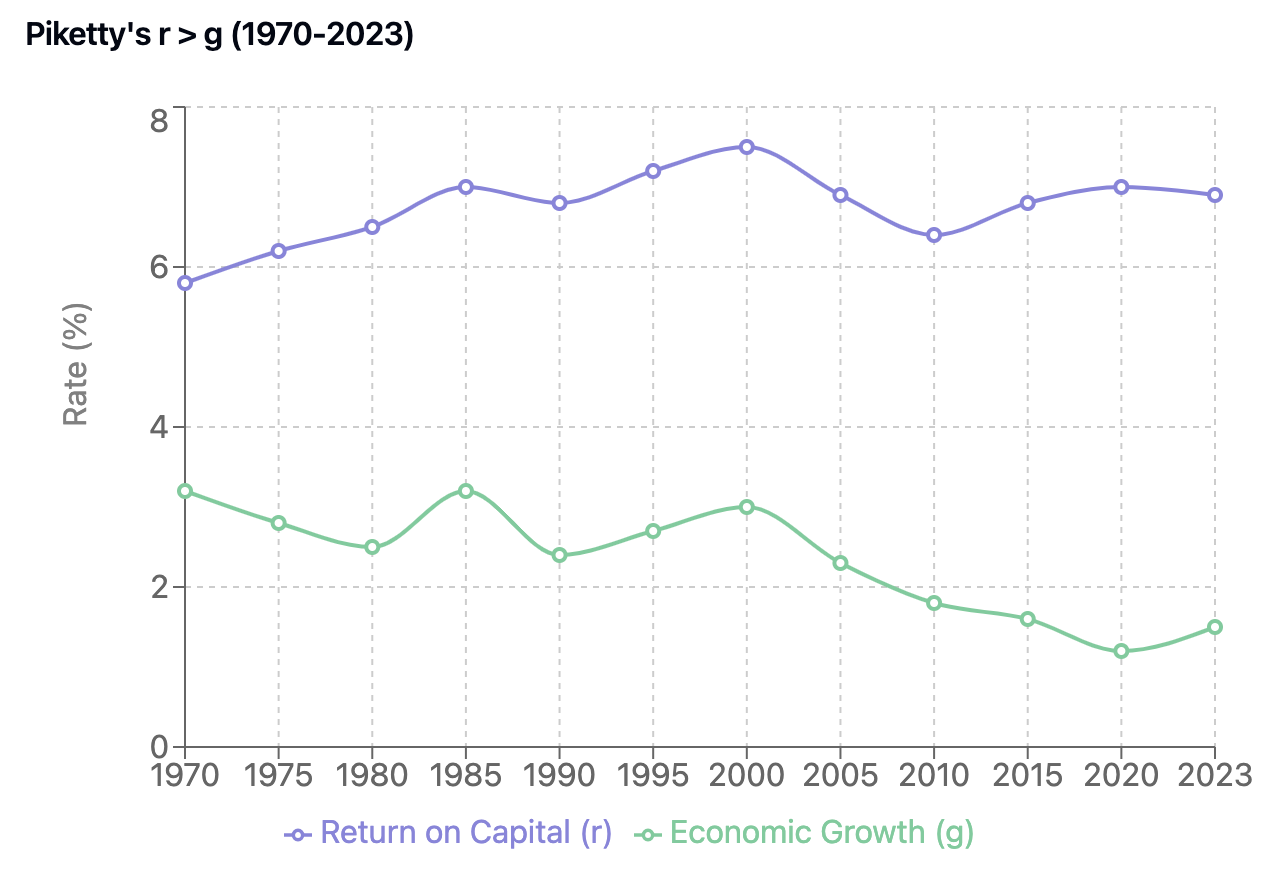
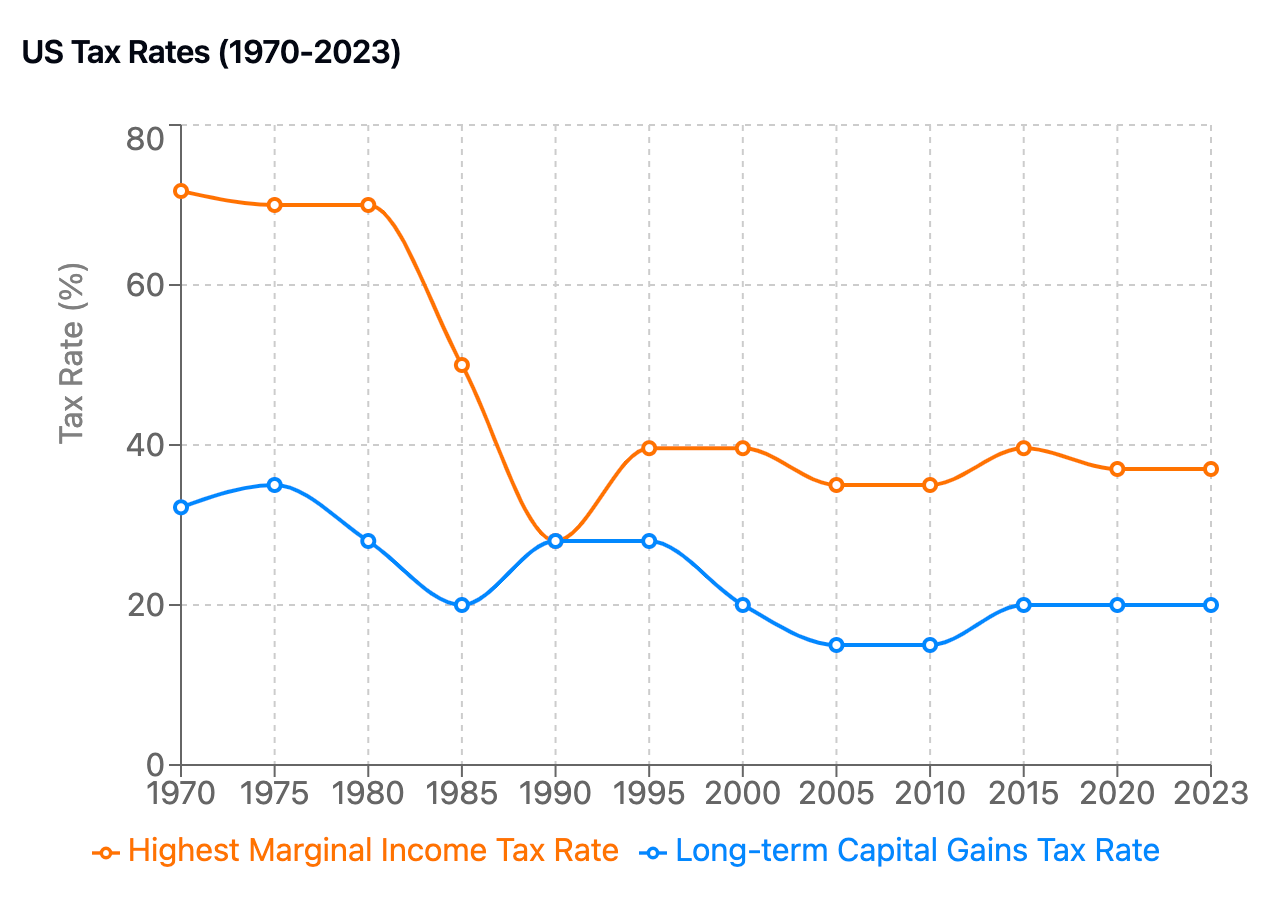
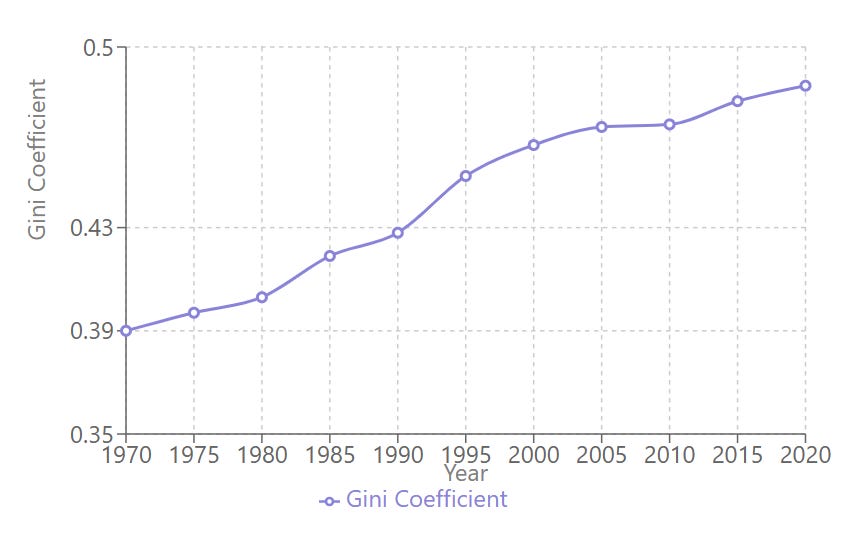
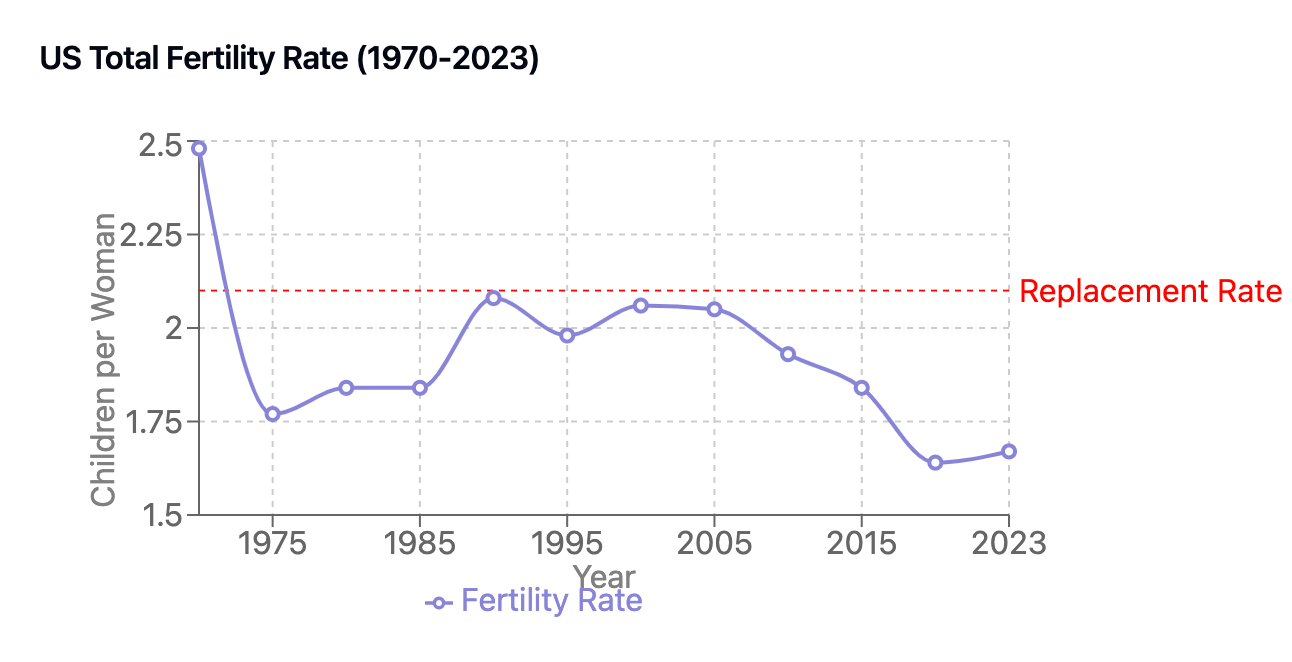
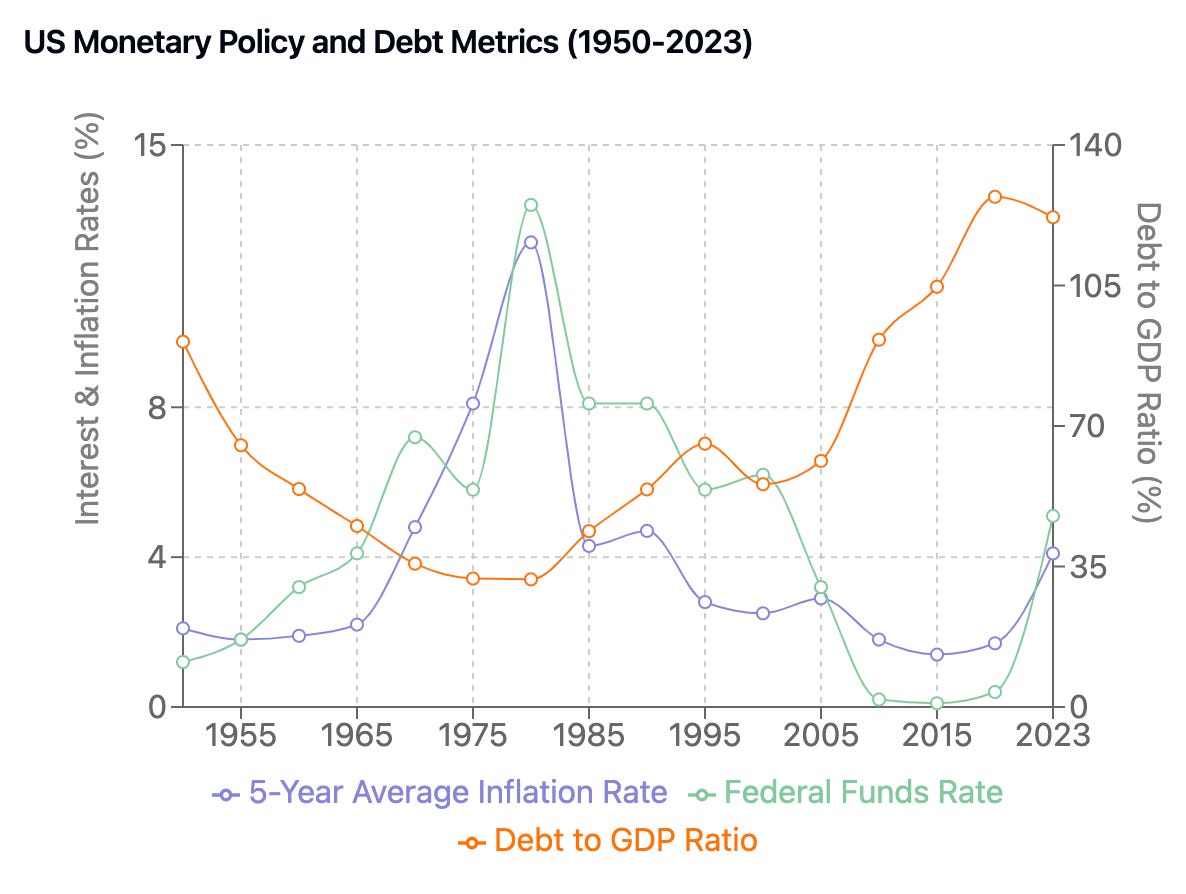
Very appropriate analysis of current situation of USA and connecting it with the story of Roman Empire. My compliments to Adi !